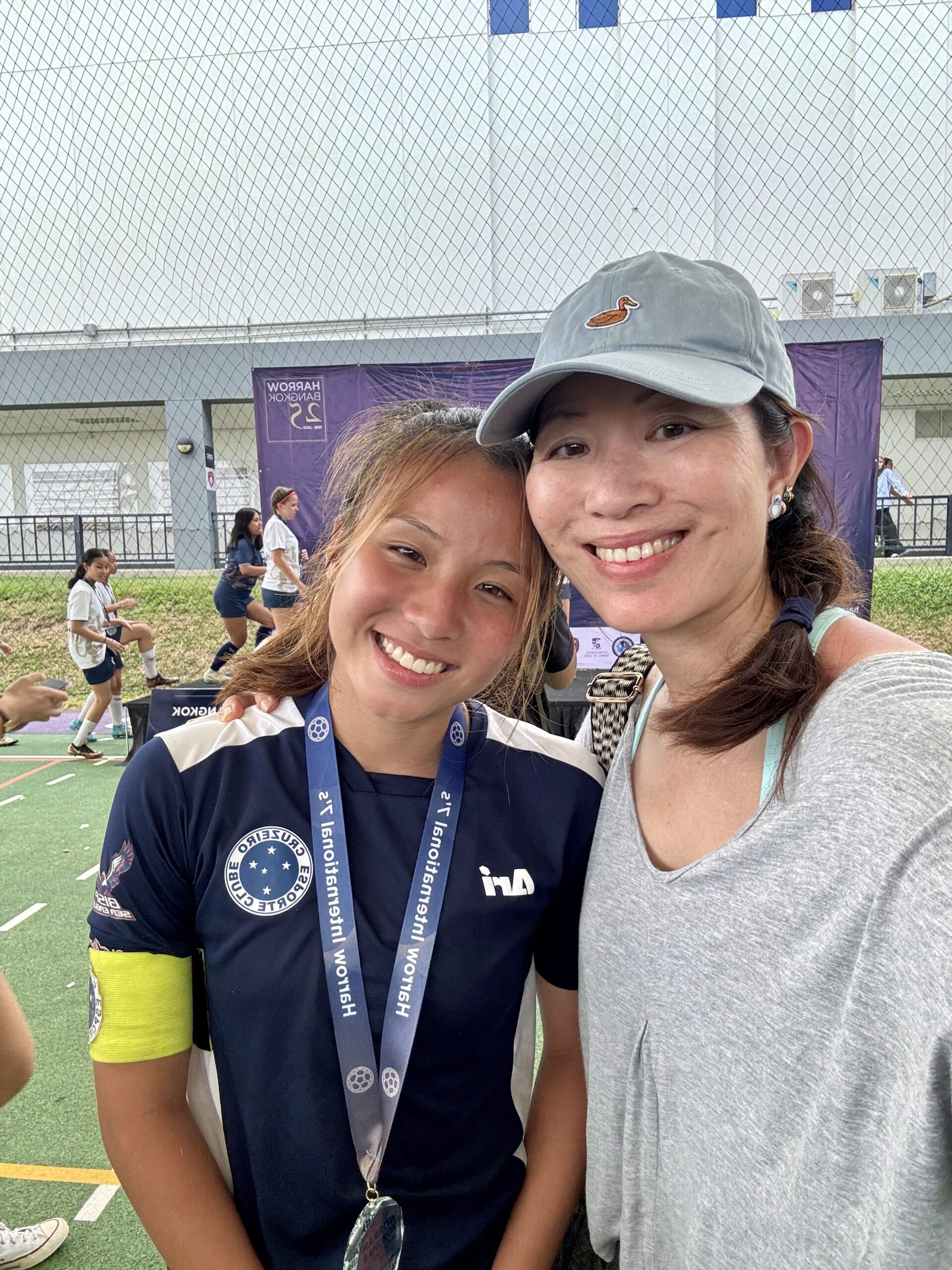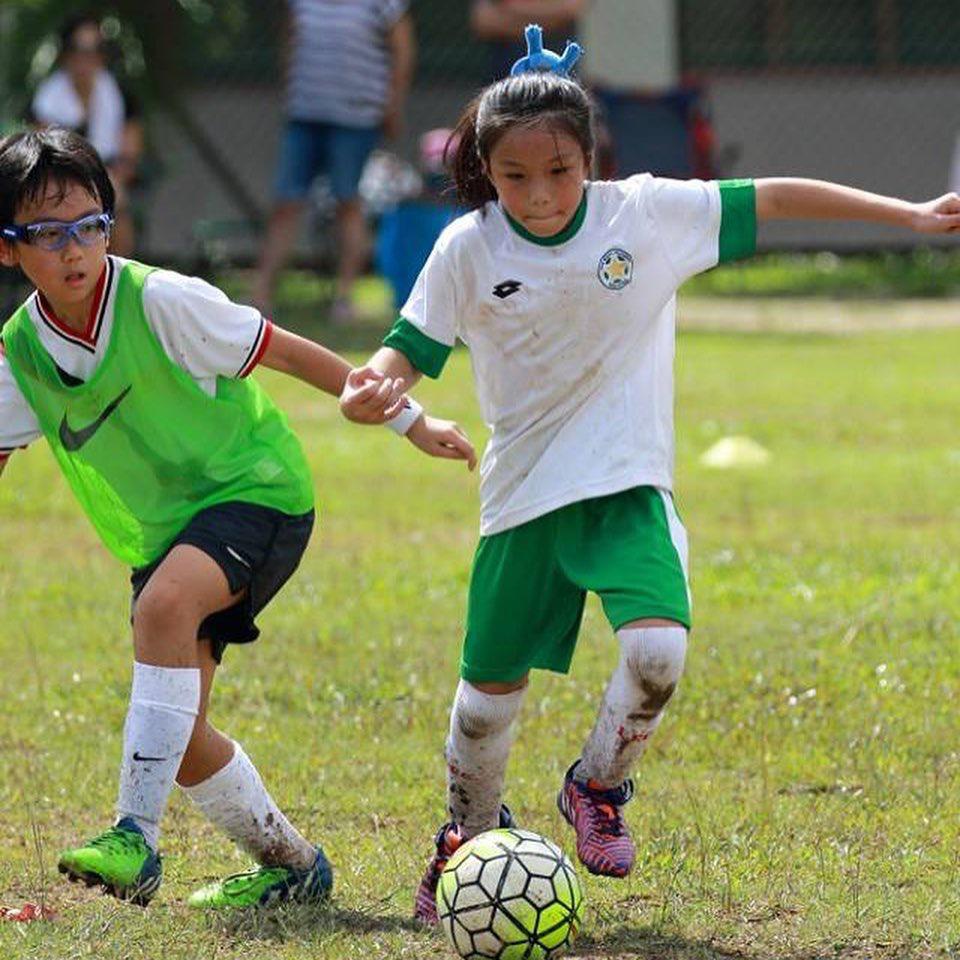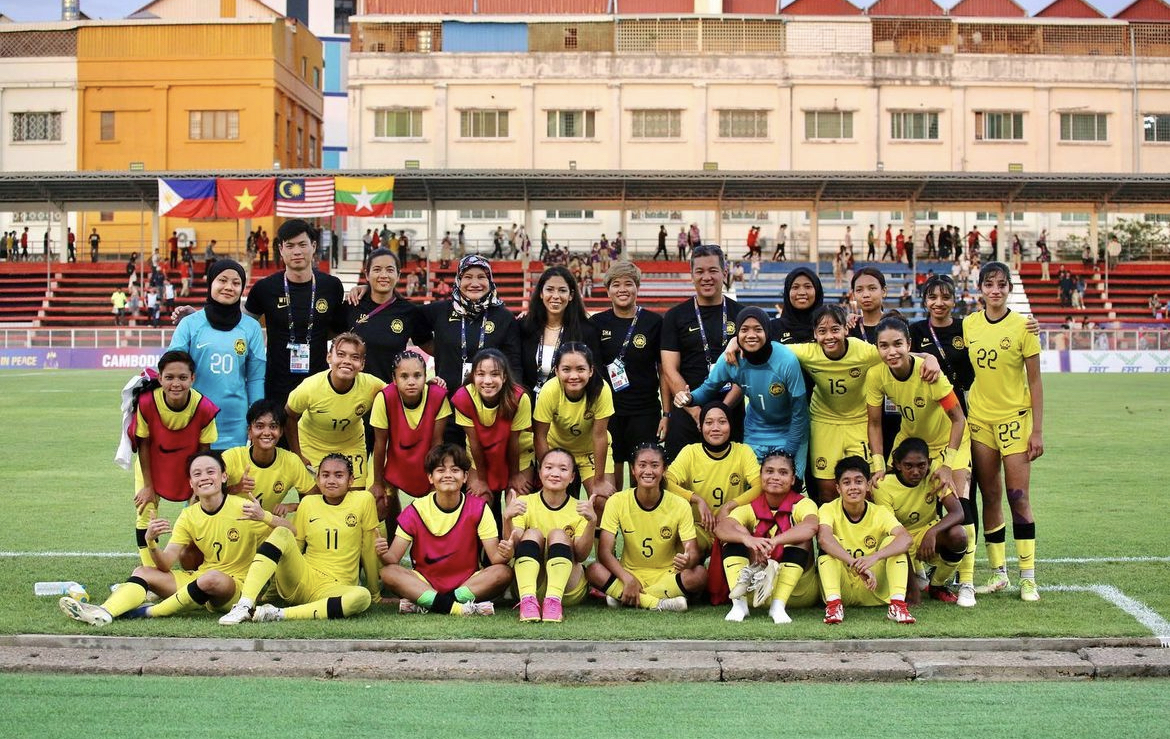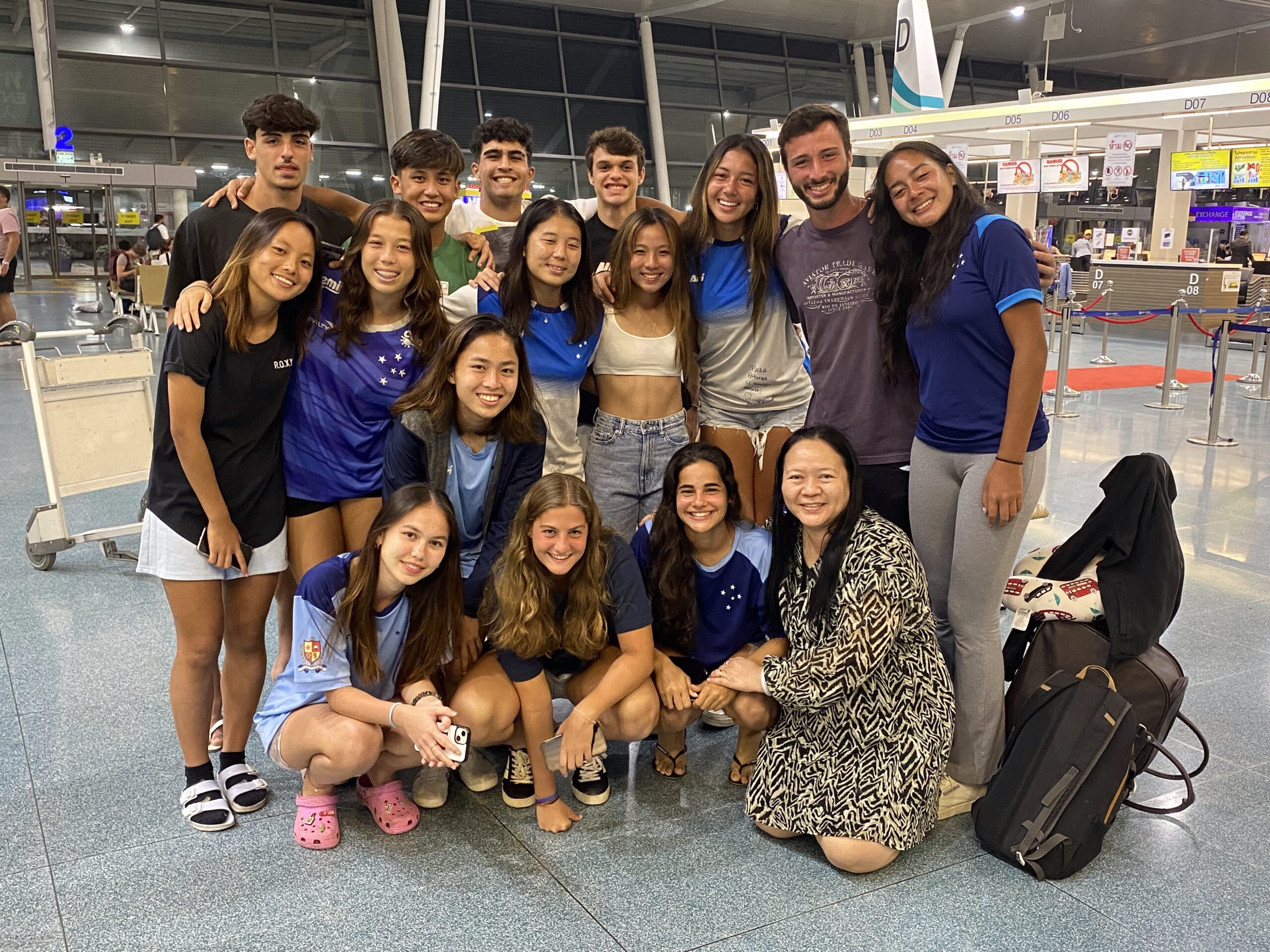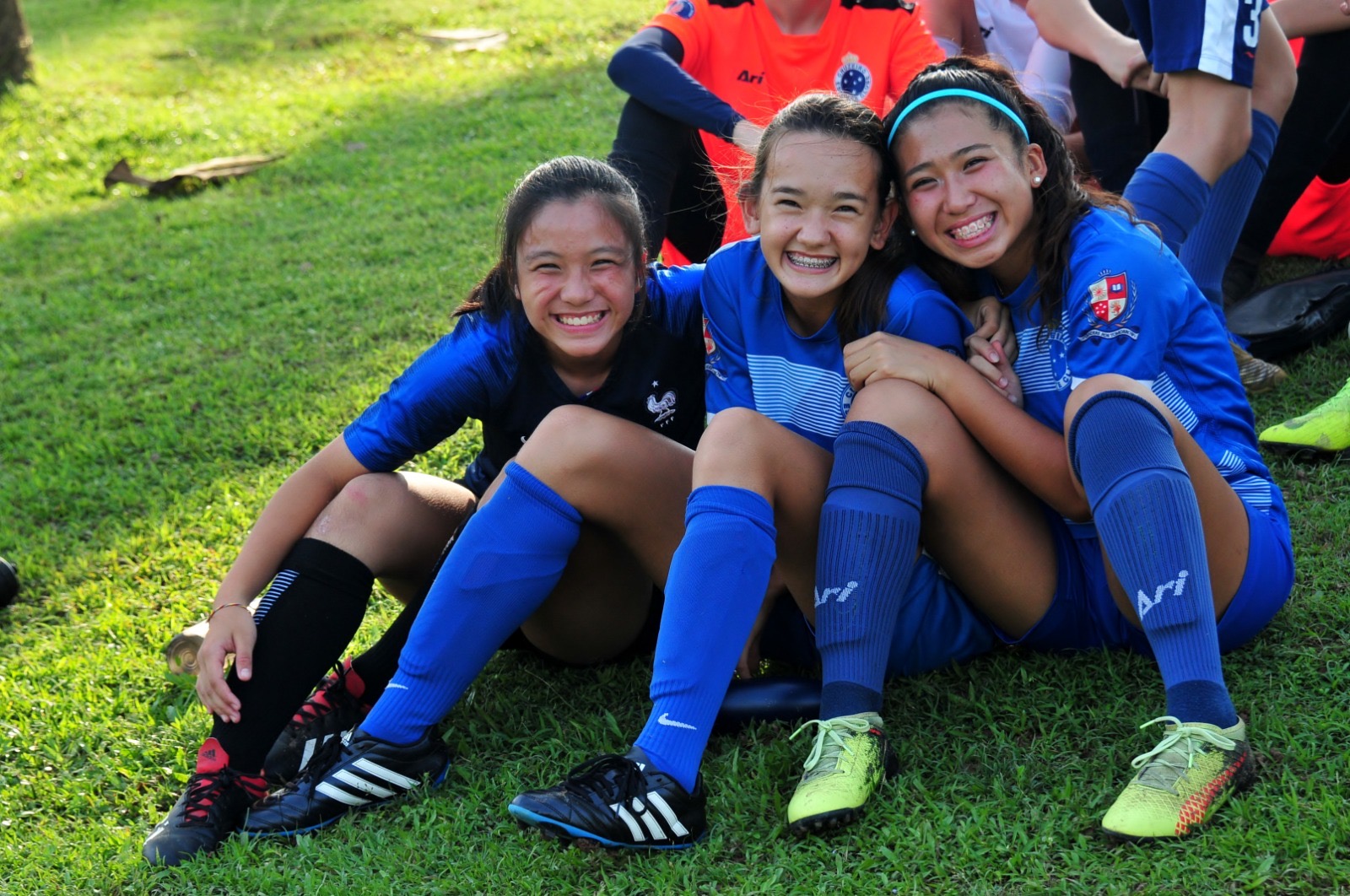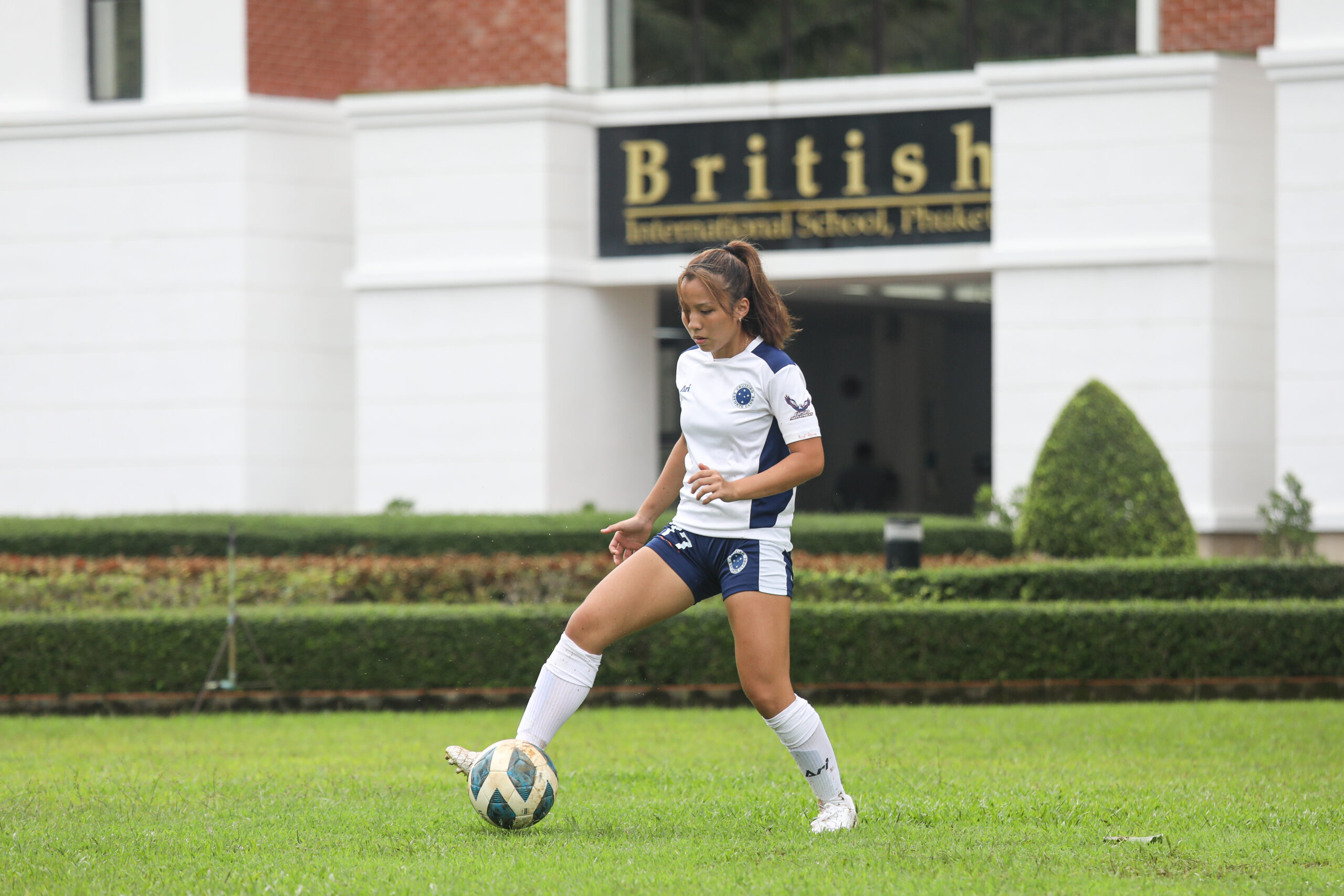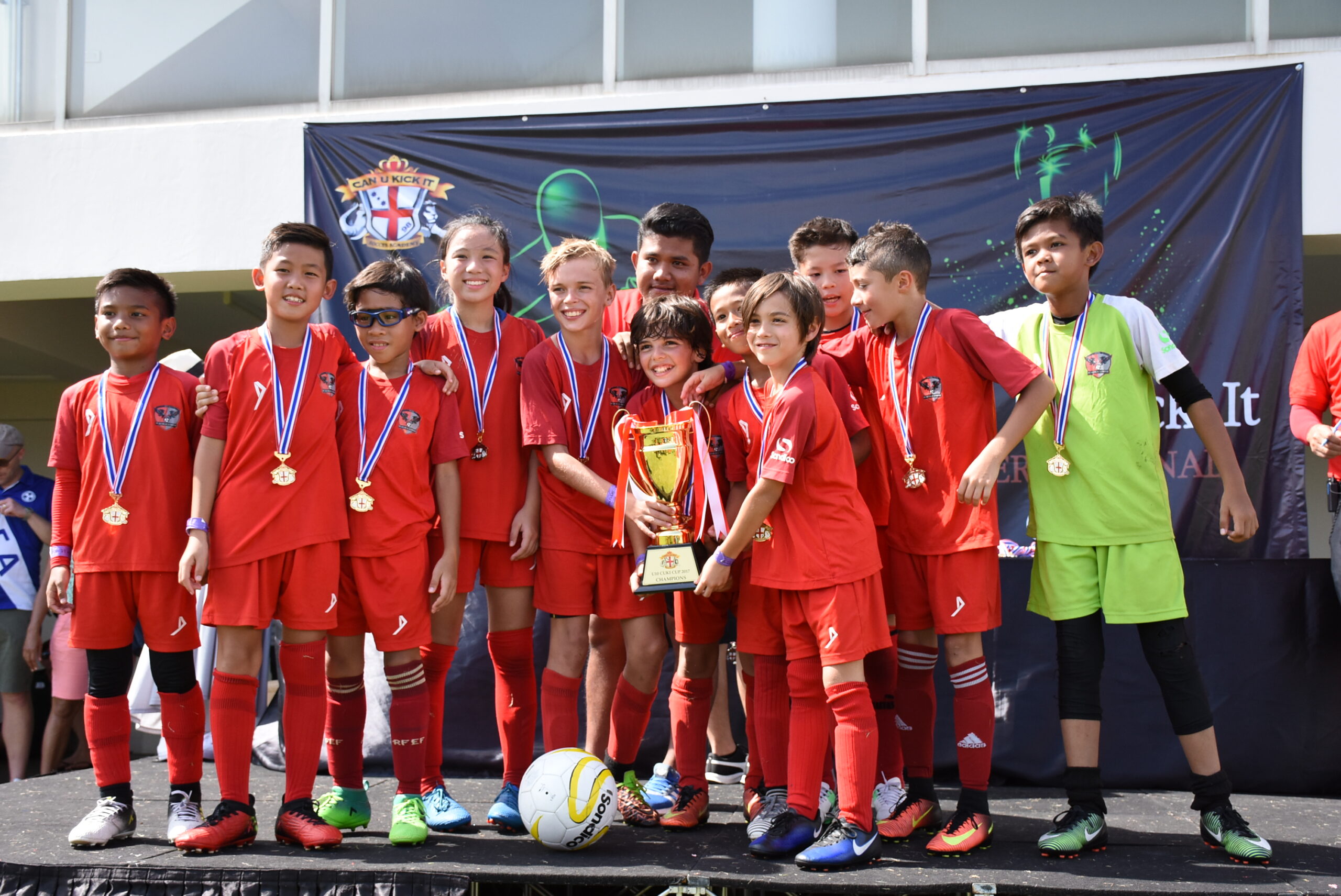Lauren Hoh
The Game That Raised Me by Lauren Hoh
“Dinner’s ready!” That was my alarm clock growing up. Not the beep-beep you hit snooze on– the real one. The one that meant: put the football down, call it a day, and pretend like you weren’t just two kicks away from breaking yet another flower pot in the backyard. Technically, my grandparents didn’t say it in English. They’d yell “Lái chī” from the kitchen– which in our house meant: Enough of that banging on the walls and trying to be Messi. Come eat your rice. Looking back, I never imagined life would turn out the way it has. I was just a little girl with five bruises per leg (on average), chasing two things: a ball, and the chance to send some poor boy flying with a tackle. That was it. That was the dream. Well– that, and making it back inside in time for my grandparents’ cooking. Authentic, home-cooked, Chinese food. The kind you can smell from the other side of the neighbourhood. The kind that made you sprint faster than any coach ever could. Now here I am, on the other side of the world– writing this from Trinity College, a liberal arts university in the U.S, often regarded as one of the “Little Ivies.” A place that once felt like a distant dream flashing across the television screen. All because of football (or soccer, as they insist on calling it here). Well, and if I’m being honest, academics too. I joke about it sometimes, but academics has always been serious business– something my family instilled in me early on. In fact, when I was eight, my mom struck me with the most defining proposition of my life: get good grades, and you can start playing competitively. I haven’t stopped playing since– except for the occasional breaks when I’m forced to. Usually by my mom’s nagging that I should rest, injuries, or (most of the time) both. Though to be fair, the injuries usually happen because I ignore her advice. My mom has been my biggest supporter and I wouldn’t be half the person I am today without her. Anyone who’s had the privilege of meeting her knows what a generous, kind and resilient person she is. Witnessing that from a young age, I learned what real strength looks like.
Much of my childhood, I remember kicking a ball around. That took up most of my days and weekends. But the truth is, there were many other parts of my childhood that weren’t as glamorous or fun as chasing a ball. At home, things weren’t always easy. Some days, it felt less like a playground and more like a battlefield. There’s a strange kind of heartbreak that comes from realizing that the walls meant to protect you can harbor the hardest battles– and that the hands meant to shield you can leave the deepest bruises. But looking back, those experiences forced me to grow up fast and taught me what it means to keep going anyway. Still, I remember the good in distinct flashes– Saturday tennis lessons on Saturdays where I’d get frustrated losing to the coach, but the promise of a great brunch afterward (usually French toast or waffles) softened the blow. Then there were Capoeira lessons, where I picked up cool moves (which my mom likes to believe is where my tackles were born), and long afternoons staying after school to play football with the older boys, who would shove me in whatever position was left–usually in goal– and kick me in the face more often than not. But it was all worth it on the days I managed to send them to the shops, and on those rare occasions when someone would come by selling keropok lekor, drenched in just the right amount of sauce. Amidst all the chaos, football was the constant. The one thing that made sense when nothing else did. It really started at Goal Academy, where I joined the boys’ team at eight. There wasn’t a girls’ team, so I played with the boys. Looking back, I probably learned to hold my own a little earlier than most. You kind of have to when you’re usually the only girl on the team and the opposing coaches are shouting for their players to go at you because you’re a girl. I must’ve told this story a million times, but the way I got into football was pretty random. My mom had signed my older brother up for lessons, and me being me, ended up kicking tin cans around because I couldn’t sit still. Eventually, tin-can football started to feel like a decent career path (or at least more fun than sitting around), so I asked my mom if I could join too. That’s when she hit me with the aforementioned, now-legendary deal: Sure, but only if you get good grades. Classic mom move– dangling dreams like a carrot on a report card. She still brings it up every chance she gets. I moved through a few boys’ academics– Destiny FC, FCKL– until I was 13. But in the middle of it all, I lost my dad. He was not my biological father, but he was my dad in every way that mattered. Football became more than just a game– it became my anchor. My escape. The one thing I could turn to when everything else felt too heavy to bear. I still remember showing up for a little league match the same weekend he passed, and flying to a tournament in Thailand a week later, where my team won gold. Grief at that age–or any age, really–shows up in different and unexpected ways. For me, apparently, the best therapy was tackling random boys on the pitch like my life depended on it. That year was one of the hardest I’ve ever faced, but I made it through—and ended up being named Player of the Year across all age groups in the boys’ category. Thirteen was a big year. I got selected to train with FC Barcelona as part of the Astrokem Bola program. That same year, I also got the chance to represent Malaysia at the GAZPROM Football For Friendship program in Moscow during the FIFA World Cup, which essentially meant a free ticket to watch the World Cup and meet people from all corners of the globe. And just when I thought I was riding high, I received my first first national call-up for the U15 team at the AFF Championship. I was over the moon… until the games kicked off and reality hit me like a brick wall. We played against some seriously good teams and players. I remember lying in my hotel bed after matches, equal parts humbled and hungry, thinking: I’ve got to step it up. That tournament lit a fire in me. When I got home, I doubled down. On top of my regular football and track and field training, I started putting in extra hours. My schedule looked something like this: wake up around 5am, have a quick breakfast, then head straight to school for training until classes started at 7:45. Mondays, Wednesdays, and Fridays were for track; Tuesdays and Thursdays, solo football sessions. After school? Team practice. Weekends? Games. It was exhausting at times. And at that age, it meant missing out– birthday parties, weekend hangouts, school camps that everyone else came back from with inside jokes and mosquito bites. But it was also the first time I understood what it meant to want something badly enough to chase it before sunrise. And deep down, I knew this wasn’t just about me. If football could ease my mom’s financial burden or open up a future where I could provide for us, I’d lace my boots a hundred times over. During that same AFF tournament, one of my teammates—who also happens to be one of my best friends and one of the best humans I know (big shoutout to Celine Chuang)— introduced me to the British International School of Phuket and encouraged me to apply for a scholarship to study there, play for the BISP Cruzeiro Academy, and board full-time. At the time, the thought of leaving home and everything familiar felt terrifying. But that leap into the unknown turned out to be one of the best decisions I’ve ever made.
Cruzeiros' possession-based philosophy pushed me technically. The transition wasn’t always smooth, but I learnt to embrace mistakes as chances to grow. Over time, I found my voice on and off the pitch– and was eventually named team captain in my final year. That shy 13 year old who took a chance left BISP as someone who had learned to lead with confidence, resilience, and heart. I met some of the most incredible people from all over the world and rode the roller coaster from from the cloud-nine highs to full-blown "why-am-I-crying-on-a-Tuesday" lows. I learned to stand on my own two feet, both on and off the pitch. The friendships, the football, the late-night heart-to-hearts, the heartbreaks, the wins, the losses—they all shaped me into the chaotic, resilient, slightly sleep-deprived person you see today. And honestly? I wouldn’t trade those memories for all the clean laundry in the world– which says a lot, especially coming from a college student. I owe so much to the coaches who believed in me and pushed me– each taught me something different, something lasting. And to my teammates—thank you for making every bus ride, every locker room pep talk, and every 6am training session worth it. You made me better– not just as a player but as a person. I’ve had the privilege of continuing to play for Malaysia over the years– both at youth and senior levels– making my senior team debut for the SEA Games in 2023. I went in barely knowing anyone (and speaking even less), and somehow walked out with lifelong bonds, group chat chaos, and some of the most inspiring women in the country becoming sisters and mentors. While women’s football in Malaysia still has a long way to go, what these women have done to push the game forward and break boundaries has been nothing short of extraordinary. I’m proud to stand alongside them– and grateful that they’ve left the game in a better place for the rest of us coming up behind them.
Since then, I’ve gone on to play NCAA Division III soccer in the US, and even got the opportunity to train with the AC Milan and Liverpool academies this summer with my team. Football didn’t just give me a way out– it gave me a way through. Playing in the US was another kind of adjustment. The game here is fast, physical, and demanding in ways that challenged everything I knew. In the US, it's relentless— athletic, and chaotic at times with no time to breathe, let alone think. But that intensity pushed me to scan faster and play quicker. Where Cruzeiro taught me how to read a game, the US taught me how to survive it. Each version of me—whether scrappy, strategic, or composed—had to show up. And I learned that real growth doesn’t come from comfort; it comes from constantly being willing to adjust. From dodging flower pots in my backyard back home in Malaysia, to after-school games that left me with bruises and busted pride, to pick-up games in my neighbourhood court– each chapter, from Thailand to the US, and all the stops in between, layered its own lessons and challenges to the person I am today. The journey hasn’t been easy. But each setback taught me something– about resilience, belief, and most importantly, finding joy and fun in the little things. Football brought me around the world. It has been my constant, my escape, my universal language when words fall short. It connected me to people and places I never imagined, reminding me that home isn’t always a place on a map. Sometimes, it’s the feeling of sending a striker flying halfway across the world, and knowing deep down: this journey started long before I ever boarded a plane. Sometimes I still hear my grandparents’ voice: "Dinner's ready!" But now it’s just an echo, tucked somewhere in my head—reminding me that some dreams start in the backyard, barefoot and bruised, chasing a ball. And if you chase it long enough—through the heartbreak, the homesickness, the flights and 6am alarms—you might just find yourself right where you're meant to be.
